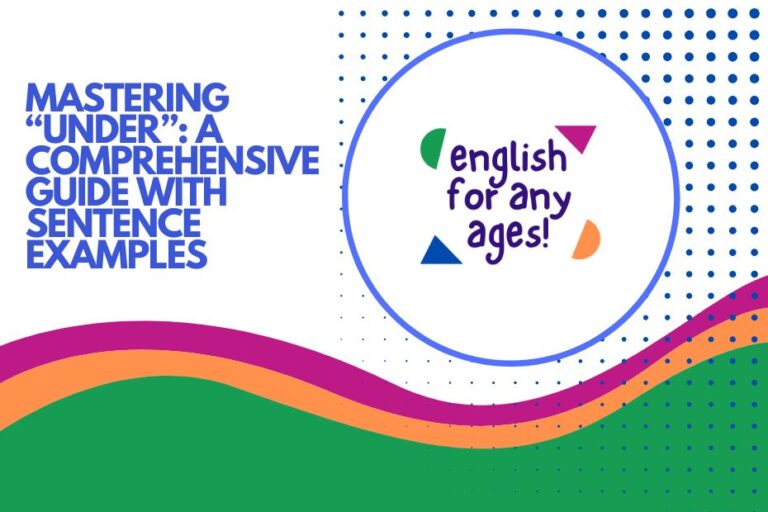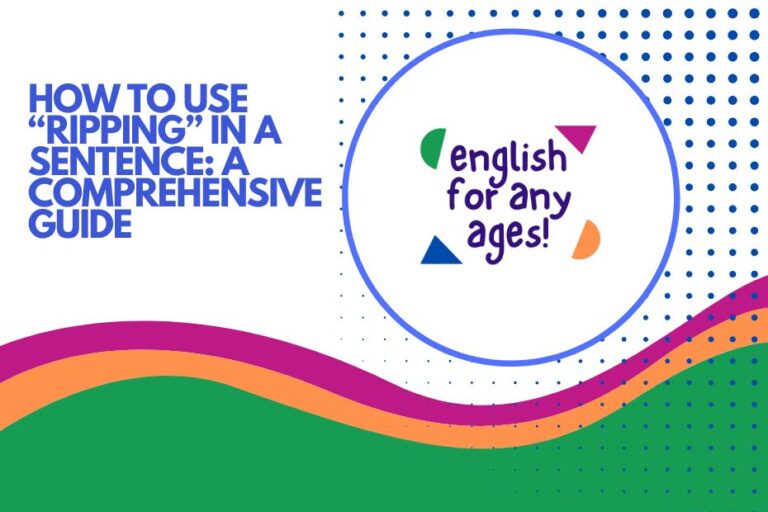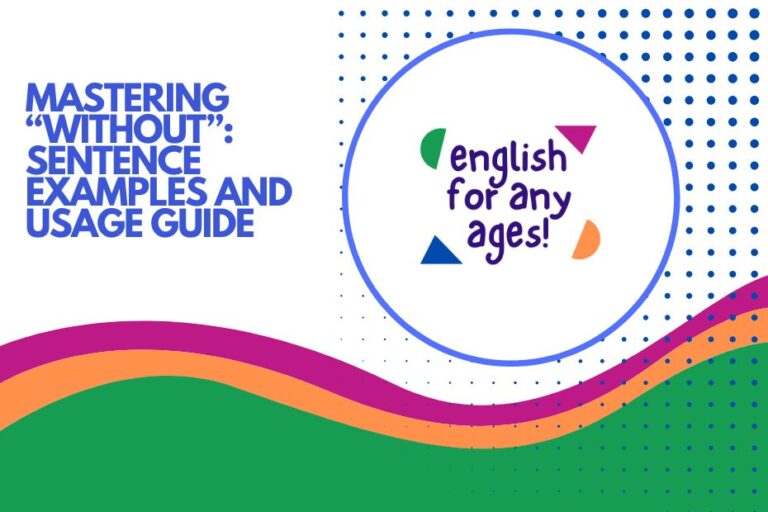How to Use “Hiraeth” in a Sentence: A Comprehensive Guide
Understanding how to use the word “hiraeth” correctly can add a unique depth to your English vocabulary. “Hiraeth” is a Welsh word that has no direct equivalent in English, making its usage both intriguing and challenging.
This article provides a comprehensive guide on how to incorporate “hiraeth” into your sentences effectively, exploring its meaning, nuances, and appropriate contexts. Whether you’re a language enthusiast, a writer seeking evocative vocabulary, or simply curious about this beautiful word, this guide will equip you with the knowledge and examples to use “hiraeth” with confidence.
This article delves into the definition, structural considerations, and various ways to use “hiraeth” in a sentence. We’ll explore its emotional weight and the specific situations where it fits best.
By examining numerous examples and addressing common mistakes, you’ll gain a solid understanding of how to wield this powerful word. Practice exercises will further solidify your knowledge, ensuring you can use “hiraeth” accurately and appropriately.
This guide is designed for learners of all levels, from those just discovering the word to advanced speakers looking to refine their usage.
Table of Contents
- Definition of Hiraeth
- Structural Breakdown
- Contexts for Using Hiraeth
- Examples of Hiraeth in Sentences
- Usage Rules for Hiraeth
- Common Mistakes When Using Hiraeth
- Practice Exercises
- Advanced Topics
- Frequently Asked Questions
- Conclusion
Definition of Hiraeth
Hiraeth is a Welsh word that encapsulates a profound sense of longing for a home, person, or time that is either unattainable or no longer exists. It’s often described as a homesickness for a place you can never return to, a nostalgia tinged with sadness, and a yearning for something lost. It’s more than just missing something; it’s a deep, inconsolable ache that resonates within the soul.
Unlike simple nostalgia or homesickness, hiraeth carries a weight of irretrievability. It’s not merely remembering good times, but feeling the absence of those times acutely.
The word’s meaning is deeply rooted in Welsh culture and history, often associated with the diaspora and the longing for a homeland left behind. While there’s no direct English translation, it is often described using a combination of words to capture its full essence.
Hiraeth can be classified as a noun, referring to the feeling itself. While less common, it can also be used adjectivally to describe something that evokes this feeling of longing. Its function in a sentence is to express this specific type of deep, nostalgic yearning. The word’s power lies in its ability to convey a complex emotional state in a single term, making it a valuable tool for writers aiming to evoke strong feelings in their readers.
Structural Breakdown
While “hiraeth” itself is a single word, understanding how to use it effectively in a sentence involves considering its grammatical role and how it interacts with other words. As a noun, it can function as the subject, object, or complement of a sentence.
It’s often accompanied by descriptive adjectives or phrases that further clarify the nature of the longing.
The structure of sentences using “hiraeth” often involves verbs that express feeling or experiencing. Verbs like “feel,” “experience,” “have,” “overcome,” and “be filled with” are commonly used to convey the presence of hiraeth.
Prepositional phrases, such as “for,” “towards,” or “in,” can be used to specify the object or source of the hiraeth. The use of figurative language, such as metaphors and similes, can also enhance the expressive power of “hiraeth” in a sentence.
Consider the following sentence structure: [Subject] + [Verb] + [Hiraeth] + [Prepositional Phrase (optional)]. For example: “She felt hiraeth for her childhood home.” Here, “she” is the subject, “felt” is the verb, “hiraeth” is the object, and “for her childhood home” is the prepositional phrase specifying the object of the longing. Understanding this basic structure can help you construct grammatically correct and emotionally resonant sentences using “hiraeth.” The key is to ensure the surrounding words enhance and clarify the specific nuances of this complex emotion.
Contexts for Using Hiraeth
The word “hiraeth” is most appropriately used in contexts where there is a deep, almost spiritual longing for something that is lost or unattainable. This could include longing for a past time, a lost loved one, a homeland, or even a sense of peace or belonging.
It’s crucial to use “hiraeth” when the emotion is more profound than simple sadness or nostalgia; it should convey a sense of irretrievable loss.
Hiraeth is often found in literature, poetry, and songwriting, where its evocative power can be used to create a sense of melancholy and longing. It’s also used in personal essays and memoirs to describe deeply felt emotions.
In everyday conversation, “hiraeth” might be used to describe a feeling of disconnection from one’s roots or a yearning for a simpler time. However, because of its specific meaning, it is not a word to be used lightly.
Its strength lies in its precision.
Consider the cultural context as well. While “hiraeth” can be used by anyone, it carries particular weight within Welsh culture and among those familiar with its nuances.
Using it respectfully and understanding its cultural significance will enhance its impact. In summary, use “hiraeth” when you want to express a deep, inconsolable longing for something lost, unattainable, or deeply intertwined with a sense of identity and belonging.
Examples of Hiraeth in Sentences
The following sections provide numerous examples of how to use “hiraeth” in a sentence, categorized by the specific type of longing being expressed. Each example is designed to illustrate the word’s nuances and demonstrate its versatility in different contexts.
These examples will serve as a guide to help you incorporate “hiraeth” into your own writing and speech effectively.
Expressing Longing
This section focuses on examples where “hiraeth” is used to express a general sense of longing. These examples showcase how “hiraeth” can be used to describe a deep yearning for something unspecified or undefined, a feeling of incompleteness or a desire for something more.
The following table provides examples of sentences using “hiraeth” to express longing. Each sentence aims to capture the deep, often unexplainable, sense of yearning that characterizes the word.
| # | Sentence |
|---|---|
| 1 | A deep hiraeth filled her heart as she watched the sunset, a longing for something she couldn’t name. |
| 2 | He felt a profound hiraeth, a constant ache for a life he could never quite grasp. |
| 3 | The old photograph evoked a hiraeth within her, a yearning for a past she barely remembered. |
| 4 | She carried a hiraeth for a sense of belonging, a feeling of being truly home. |
| 5 | His soul was filled with hiraeth, an endless quest for something just beyond his reach. |
| 6 | A subtle hiraeth lingered in the air, a whisper of what once was and could never be again. |
| 7 | The music stirred a hiraeth within him, a longing for a connection he couldn’t define. |
| 8 | She tried to ignore the hiraeth, but it clung to her like a persistent shadow. |
| 9 | He recognized the hiraeth in her eyes, a shared understanding of unspoken desires. |
| 10 | The empty house echoed with hiraeth, a silent testament to lives lived and lost. |
| 11 | A wave of hiraeth washed over her as she read the old letters, each word a reminder of what she missed. |
| 12 | He couldn’t shake the hiraeth, a constant reminder of his incompleteness. |
| 13 | The scent of rain always brought with it a hiraeth, a longing for simpler times. |
| 14 | She spoke of her hiraeth with a quiet sadness, a resignation to a perpetual yearning. |
| 15 | He felt the hiraeth intensify with each passing year, the distance between him and his dreams growing ever wider. |
| 16 | The landscape seemed to breathe hiraeth, a palpable sense of longing woven into the very fabric of the land. |
| 17 | She attempted to drown her hiraeth in work, but the feeling persisted, a dull ache in her heart. |
| 18 | He understood the hiraeth that drove her, the relentless pursuit of a happiness that always seemed elusive. |
| 19 | The melody carried a haunting hiraeth, each note a lament for something lost and irreplaceable. |
| 20 | She embraced the hiraeth, allowing it to guide her towards a deeper understanding of herself. |
| 21 | The artist channeled his hiraeth into his work, creating pieces that resonated with profound emotion. |
| 22 | The traveler carried a hiraeth for the open road, a constant desire to explore the unknown. |
| 23 | The old woman’s eyes held a deep hiraeth, a lifetime of memories and lost connections. |
| 24 | The child felt a hiraeth for the imaginary friend, a longing for a bond that had never truly existed. |
| 25 | The writer explored the theme of hiraeth in her novel, delving into the complexities of human longing. |
Evoking Nostalgia
This section explores how “hiraeth” can be used to evoke a sense of nostalgia, particularly a bittersweet longing for the past. The examples below illustrate how “hiraeth” can capture the feeling of wistful remembrance and the recognition that those moments are gone.
The following table provides examples of sentences incorporating “hiraeth” to express nostalgia. These sentences aim to convey the bittersweet feeling of looking back on cherished memories while acknowledging their irretrievability.
| # | Sentence |
|---|---|
| 1 | A wave of hiraeth washed over him as he remembered his childhood summers, filled with laughter and freedom. |
| 2 | The old photograph stirred a deep hiraeth, a longing for the carefree days of her youth. |
| 3 | She spoke of her past with a gentle hiraeth, her words painting a vivid picture of a time long gone. |
| 4 | He felt a pang of hiraeth as he walked through his old neighborhood, now changed beyond recognition. |
| 5 | The scent of pine needles always evoked a hiraeth, a nostalgic yearning for family holidays in the mountains. |
| 6 | A bittersweet hiraeth filled her heart as she listened to the old songs, each note a reminder of a different time. |
| 7 | He carried a hiraeth for his college days, a time of endless possibilities and youthful exuberance. |
| 8 | The abandoned schoolhouse stood as a monument to hiraeth, a silent reminder of forgotten lessons and youthful dreams. |
| 9 | She couldn’t help but feel a hiraeth for the simpler times, before technology dominated every aspect of life. |
| 10 | He found himself overcome with hiraeth as he flipped through the old photo album, each picture a portal to the past. |
| 11 | The taste of her grandmother’s apple pie always brought with it a hiraeth, a longing for the warmth and comfort of her childhood home. |
| 12 | She recognized the hiraeth in her father’s eyes as he reminisced about his own father, a man she never knew. |
| 13 | He tried to suppress the hiraeth, knowing that dwelling on the past would only make him feel more disconnected from the present. |
| 14 | The old theater, with its faded grandeur, exuded a palpable sense of hiraeth, a longing for the golden age of entertainment. |
| 15 | She felt a sharp pang of hiraeth as she watched her children grow up, knowing that their childhoods were fleeting. |
| 16 | He understood the hiraeth that drove people to collect antiques, a desire to hold onto tangible pieces of the past. |
| 17 | The diary was filled with her hiraeth, a chronicle of lost loves and unrealized dreams. |
| 18 | She channeled her hiraeth into her art, creating paintings that captured the beauty and fragility of memory. |
| 19 | He found solace in sharing his hiraeth with others, a communal mourning for a shared past. |
| 20 | The town’s annual festival was a celebration of hiraeth, a collective remembering of its history and traditions. |
| 21 | The historian documented the hiraeth of the displaced community, preserving their stories for future generations. |
| 22 | The filmmaker captured the hiraeth of the aging actor, a poignant reflection on a life lived in the spotlight. |
| 23 | The musician composed a melody filled with hiraeth, a haunting tribute to a bygone era. |
| 24 | The writer wove themes of hiraeth throughout her novel, exploring the human tendency to romanticize the past. |
| 25 | The explorer carried a hiraeth for the uncharted territories, a yearning for the thrill of discovery. |
Describing a Sense of Loss
This section focuses on how “hiraeth” can be used to describe a sense of loss, particularly the deep ache that accompanies the absence of someone or something significant. These examples showcase how “hiraeth” can convey the profound grief and longing that remains after a loss.
The following table provides examples of sentences that use “hiraeth” to express a sense of loss. Each sentence aims to capture the deep, often inconsolable, grief that accompanies the absence of something or someone cherished.
| # | Sentence |
|---|---|
| 1 | A profound hiraeth settled over her after his death, a constant reminder of his absence. |
| 2 | The empty chair evoked a deep hiraeth, a longing for his familiar presence. |
| 3 | She spoke of her lost loved one with a quiet hiraeth, her words filled with both love and sorrow. |
| 4 | He felt a sharp pang of hiraeth as he revisited their favorite places, now devoid of her laughter. |
| 5 | The old photograph stirred a hiraeth within him, a painful reminder of what he had lost. |
| 6 | A heavy hiraeth weighed on her heart as she packed away his belongings, each item a precious memory. |
| 7 | He carried a hiraeth for the dreams they had shared, now shattered and unattainable. |
| 8 | The silent house echoed with hiraeth, a constant reminder of the void he had left behind. |
| 9 | She couldn’t shake the hiraeth, a persistent ache that accompanied her every waking moment. |
| 10 | He found himself consumed by hiraeth as he listened to their favorite song, each note a poignant reminder of their love. |
| 11 | The scent of her perfume always brought with it a hiraeth, a longing for her embrace. |
| 12 | She recognized the hiraeth in his eyes as he spoke of their lost child, a pain they both shared. |
| 13 | He tried to drown his hiraeth in work, but the grief persisted, an unyielding weight on his soul. |
| 14 | The abandoned garden, once vibrant with life, now stood as a testament to hiraeth, a symbol of lost beauty. |
| 15 | She felt a profound hiraeth as she watched the sunset alone, a reminder of all the sunsets they would never share. |
| 16 | He understood the hiraeth that drove people to create memorials, a desire to keep the memory of their loved ones alive. |
| 17 | The letter was filled with her hiraeth, a raw and honest expression of her grief. |
| 18 | She channeled her hiraeth into her music, creating songs that resonated with the universal experience of loss. |
| 19 | He found solace in sharing his hiraeth with others who had experienced similar losses, a sense of community in grief. |
| 20 | The town’s annual memorial service was a collective expression of hiraeth, a shared mourning for those who had been lost. |
| 21 | The historian documented the hiraeth of the war-torn nation, preserving the stories of those who had suffered. |
| 22 | The filmmaker captured the hiraeth of the refugee, a poignant reflection on the loss of home and country. |
| 23 | The poet wrote a verse filled with hiraeth, a haunting tribute to a life cut short. |
| 24 | The novelist wove themes of hiraeth throughout her story, exploring the complexities of grief and healing. |
| 25 | The artist painted a portrait filled with hiraeth, capturing the essence of a loved one who had passed away. |
Conveying Yearning
This section explores the use of “hiraeth” to convey a deep yearning, specifically a strong desire or longing for something that is deeply desired but difficult to attain. The examples illustrate how “hiraeth” can capture the intensity of this desire, often associated with dreams, aspirations, or unfulfilled potential.
The following table provides examples of sentences that use “hiraeth” to express yearning. Each sentence aims to capture the fervent desire for something deeply craved, often tinged with a sense of longing and anticipation.
| # | Sentence |
|---|---|
| 1 | A persistent hiraeth drove her to pursue her dreams, a relentless yearning for a life of purpose. |
| 2 | He felt a deep hiraeth for adventure, a constant desire to explore the unknown. |
| 3 | She spoke of her aspirations with a passionate hiraeth, her words filled with determination and hope. |
| 4 | He carried a hiraeth for a world of peace and justice, a yearning for a better future. |
| 5 | The music stirred a hiraeth within her, a longing for a connection to something greater than herself. |
| 6 | A burning hiraeth fueled his ambition, a relentless pursuit of success and recognition. |
| 7 | She couldn’t shake the hiraeth, a constant reminder of the unfulfilled potential within her. |
| 8 | He found himself consumed by hiraeth as he watched others achieve their goals, a yearning for his own moment to shine. |
| 9 | The scent of the sea always brought with it a hiraeth, a longing for the freedom and vastness of the ocean. |
| 10 | She recognized the hiraeth in his eyes as he spoke of his artistic aspirations, a shared desire to create something beautiful. |
| 11 | He tried to channel his hiraeth into his work, using his art to express his deepest desires and longings. |
| 12 | The traveler carried a hiraeth for distant lands, a constant yearning to explore new cultures and experiences. |
| 13 | She felt a profound hiraeth as she watched the stars at night, a longing for a connection to the universe. |
| 14 | He understood the hiraeth that drove people to seek enlightenment, a desire to transcend the limitations of the human experience. |
| 15 | The poem was filled with her hiraeth, a heartfelt plea for love and acceptance. |
| 16 | She channeled her hiraeth into her activism, fighting for a world that aligned with her deepest values. |
| 17 | He found solace in sharing his hiraeth with others who shared his vision, a sense of community in pursuit of a common goal. |
| 18 | The community’s collective hiraeth for a better future fueled their efforts to create positive change. |
| 19 | The inventor’s relentless hiraeth for innovation drove him to create groundbreaking technologies. |
| 20 | The scientist’s unwavering hiraeth for knowledge fueled her quest to understand the mysteries of the universe. |
| 21 | The philosopher’s profound hiraeth for truth led him to question the fundamental nature of reality. |
| 22 | The explorer’s insatiable hiraeth for discovery propelled him to venture into uncharted territories. |
| 23 | The musician’s haunting hiraeth for expression compelled them to create songs that resonated with the soul. |
| 24 | The writer’s poignant hiraeth for understanding inspired them to craft stories that delved into the depths of the human condition. |
| 25 | The artist’s beautiful hiraeth for connection motivated them to design art that bridged the barriers of culture. |
Expressing Homesickness
This section focuses on examples where “hiraeth” is used to express homesickness, but with a deeper, more profound sense of longing than just missing home. These examples illustrate how “hiraeth” captures the feeling of being disconnected from one’s roots, family, or homeland, with a sense of irretrievability.
The following table provides examples of sentences using “hiraeth” to express homesickness. Each sentence aims to capture the deep, often painful, longing for a place that feels like home, especially when that place is far away or no longer exists.
| # | Sentence |
|---|---|
| 1 | Living abroad, she often felt a deep hiraeth for her small village, a longing for its familiar sights and sounds. |
| 2 | He carried a hiraeth for his homeland, a constant ache for the mountains and valleys of his youth. |
| 3 | The immigrant spoke of his hiraeth with a quiet sadness, his words painting a vivid picture of the life he had left behind. |
| 4 | She felt a sharp pang of hiraeth as she looked at the map, her heart yearning for the place she called home. |
| 5 | The scent of rain on the earth always evoked a hiraeth, a nostalgic longing for the landscapes of her childhood. |
| 6 | A bittersweet hiraeth filled his heart as he remembered family gatherings, each memory a reminder of his distance. |
| 7 | He couldn’t shake the hiraeth, a persistent reminder of the cultural identity he had left behind. |
| 8 | The empty room echoed with hiraeth, a silent testament to the family that once filled it with laughter and love. |
| 9 | She found herself consumed by hiraeth as she listened to the traditional music, each note a poignant reminder of her roots. |
| 10 | The taste of her mother’s cooking always brought with it a hiraeth, a longing for the comfort and security of her childhood home. |
| 11 | She recognized the hiraeth in his eyes as he spoke of his village, a shared understanding of the longing for home. |
| 12 | He tried to suppress the hiraeth, knowing that dwelling on the past would only make him feel more disconnected from his new life. |
| 13 | The old photograph of his family stood as a monument to hiraeth, a constant reminder of the bonds he had left behind. |
| 14 | She felt a profound hiraeth as she celebrated holidays in a foreign land, a longing for the familiar traditions of her own culture. |
| 15 | He understood the hiraeth that drove people to seek out others from their homeland, a desire to maintain a connection to their roots. |
| 16 | The letter from home was filled with her hiraeth, a heartfelt expression of her longing to return. |
| 17 | She channeled her hiraeth into her writing, creating stories that celebrated her culture and preserved its traditions. |
| 18 | He found solace in sharing his hiraeth with other expatriates, a sense of community in their shared longing for home. |
| 19 | The community’s annual cultural festival was a collective expression of hiraeth, a shared celebration of their heritage. |
| 20 | The historian documented the hiraeth of the diaspora, preserving the stories of those who had been displaced from their homes. |
| 21 | The filmmaker captured the hiraeth of the refugee, a poignant reflection on the loss of home and identity. |
| 22 | The poet wrote a verse filled with hiraeth, a haunting tribute to the beauty and significance of home. |
| 23 | The novelist wove themes of hiraeth throughout her story, exploring the complexities of identity and belonging. |
| 24 | The artist painted a landscape filled with hiraeth, capturing the essence of a homeland that existed only in memory. |
| 25 | The traveler found a sense of peace by accepting their hiraeth and embracing new homes while honoring their roots. |
Usage Rules for Hiraeth
Using “hiraeth” correctly involves understanding its nuances and adhering to certain guidelines. Here are some key usage rules:
- Use it to express deep longing: Ensure that the context involves a profound sense of yearning, not just simple sadness or nostalgia. The feeling should be intense and deeply felt.
- Specify the object of longing: While “hiraeth” can be used generally, it’s often more effective to specify what is being longed for. Use prepositional phrases like “for,” “towards,” or “in” to clarify the object of the longing.
- Consider the cultural context: Be mindful of the word’s Welsh origins and use it respectfully. Understanding its cultural significance will enhance its impact.
- Avoid overuse: “Hiraeth” is a powerful word, but overuse can diminish its impact. Use it sparingly and only when it truly captures the emotion you want to convey.
- Use descriptive language: Enhance the emotional impact of “hiraeth” by using descriptive language that evokes the senses and creates a vivid picture of the longing.
Exceptions: While “hiraeth” is primarily used as a noun, it can occasionally be used adjectivally, though this is less common. For example, you might describe a piece of music as having a “hiraethful” quality, meaning it evokes a sense of deep longing. However, stick to using it as a noun unless you are confident in your understanding of its adjectival usage.
Common Mistakes When Using Hiraeth
One of the most common mistakes is using “hiraeth” interchangeably with simpler terms like “nostalgia” or “homesickness.” While these words share some similarities, “hiraeth” carries a deeper, more profound sense of longing that is often tinged with irretrievability.
Here are some examples of common mistakes and how to correct them:
| Incorrect | Correct | Explanation |
|---|---|---|
| I felt hiraeth for my vacation. | I felt nostalgia for my vacation. | “Hiraeth” is too strong for simply missing a vacation. “Nostalgia” is more appropriate. |
| She had hiraeth for her new home. | She felt homesick for her old home. | “Hiraeth” implies a deeper, more profound sense of loss than just missing a new home. “Homesick” is better. |
| He expressed his hiraeth with joy. | He expressed his nostalgia with joy. | “Hiraeth” is usually associated with sadness or longing, not joy. “Nostalgia” can be used in a more positive context. |
| The hiraethful song made me happy. | The nostalgic song made me happy. | While “hiraethful” could technically work, “nostalgic” is a more common and natural adjective in this context. |
| I have a hiraeth to visit Paris. | I have a yearning to visit Paris. | “Hiraeth” is not about future plans or aspirations, but about longing for something lost. “Yearning” is more suitable. |
Another common mistake is using “hiraeth” too frequently, which can diminish its impact. Use it sparingly and only when it truly captures the emotion you want to convey.
Also, be mindful of the cultural context and use the word respectfully, understanding its Welsh origins.
Practice Exercises
These exercises will help you practice using “hiraeth” correctly in sentences. For each question, fill in the blank with the appropriate word or phrase, or rewrite the sentence to incorporate “hiraeth” effectively.
| # | Question | Answer |
|---|---|---|
| 1 | She felt a deep _______ for her childhood, a time of innocence and joy. | hiraeth |
| 2 | The old photograph evoked a sense of _______ for a bygone era. | hiraeth |
| 3 | He carried a _______ for his homeland, a constant ache in his heart. | hiraeth |
| 4 | Rewrite: She missed her grandmother’s cooking. | She felt hiraeth for her grandmother’s cooking. |
| 5 | Rewrite: He longed for |






